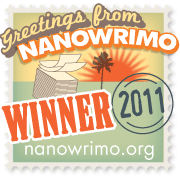“He has never been known to use a word that might send a reader to the dictionary.”
William Faulkner speaking of Ernest Hemingway
There is a good debate among writers and readers alike about vocabulary. Do big words improve the content, or do they obscure it?
When Rinaldo in my writing group used the word “peculate”, members of the group circled the word in a mad frenzy. No one knew what it meant, and this was a problem for them. I didn’t know what the word meant either, but two things happened for me in this incident: One, I’m one of those readers who enjoys opening up a dictionary. Two, I figured out what the word meant simply by the context.
The argument became one that matters beyond personal preference. Why is it a problem if you stumble over a big vocab word?
Well, if it takes you out of the story then that’s a pretty dire problem (as it did for the other members in my writing group). But what if you can figure out the meaning of the word simply by reading through the sentence, or the graph, or the scene (as happened for me). Does that matter?
A popular journalism tip goes something like this, “Don’t use a 25-cent word if you can use a 5-cent word.” (All you journalists out there, feel free to correct me!) Meaning, don’t choose a descriptive word or phrase that is not used much in normal speech when you can use an equivalent word that everyone knows.
I guess I feel two ways about it. While you want your words to be interesting and clear, you also don’t want to be talking down to the reader.
To help you decide if it’s safe to use big words, or how often to use them in your writing, I advise you to research your audience and books in your genre. You need to know whether your level of vocabulary is comparable to other authors in the genre you’re writing. You don’t want to stand out as being an insufferable writer, but you want to be an engaging, vivid writer.
And while you’re at it, if anyone knows a 5-cent word for ‘jet’ would you let me know?



